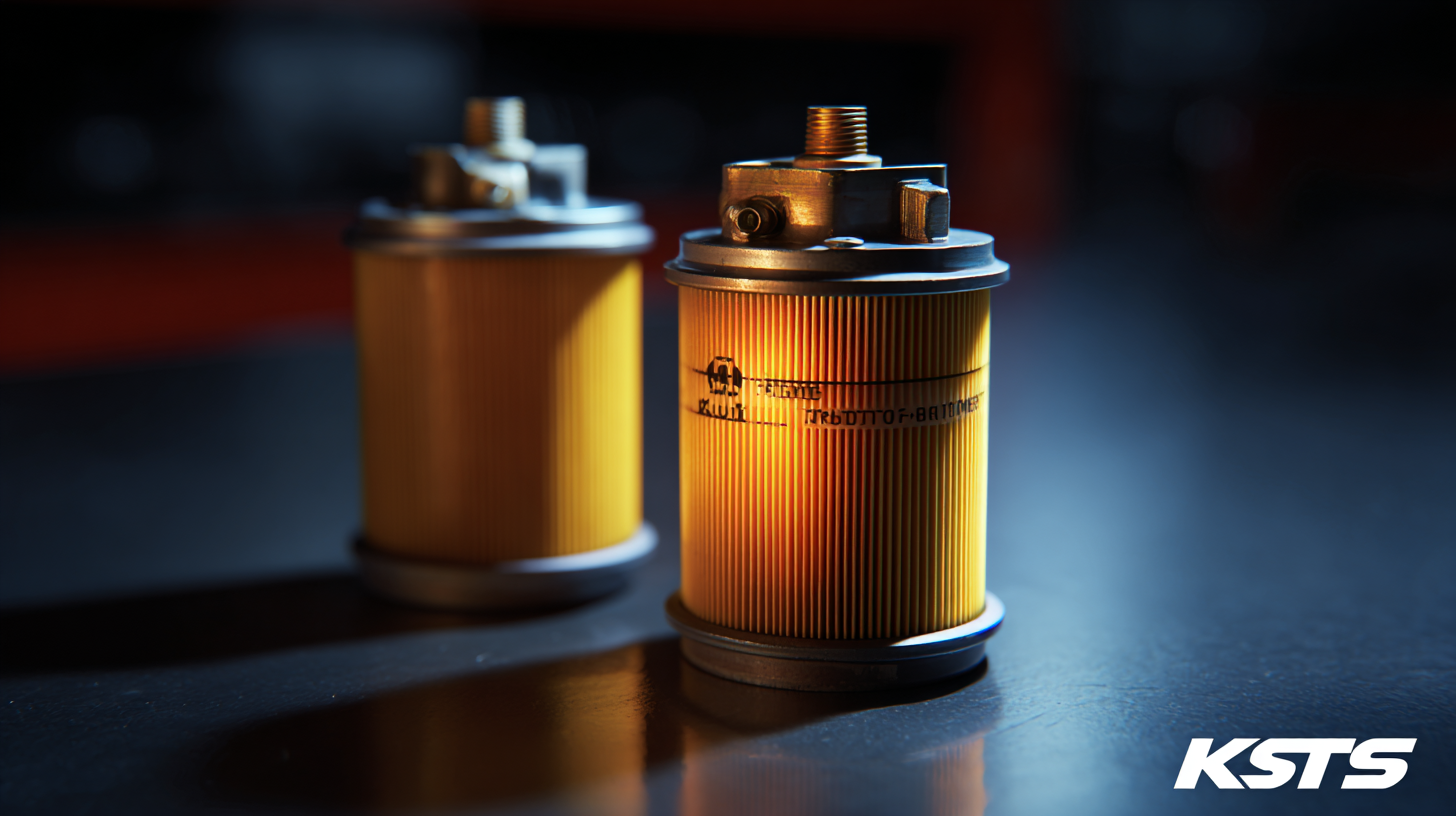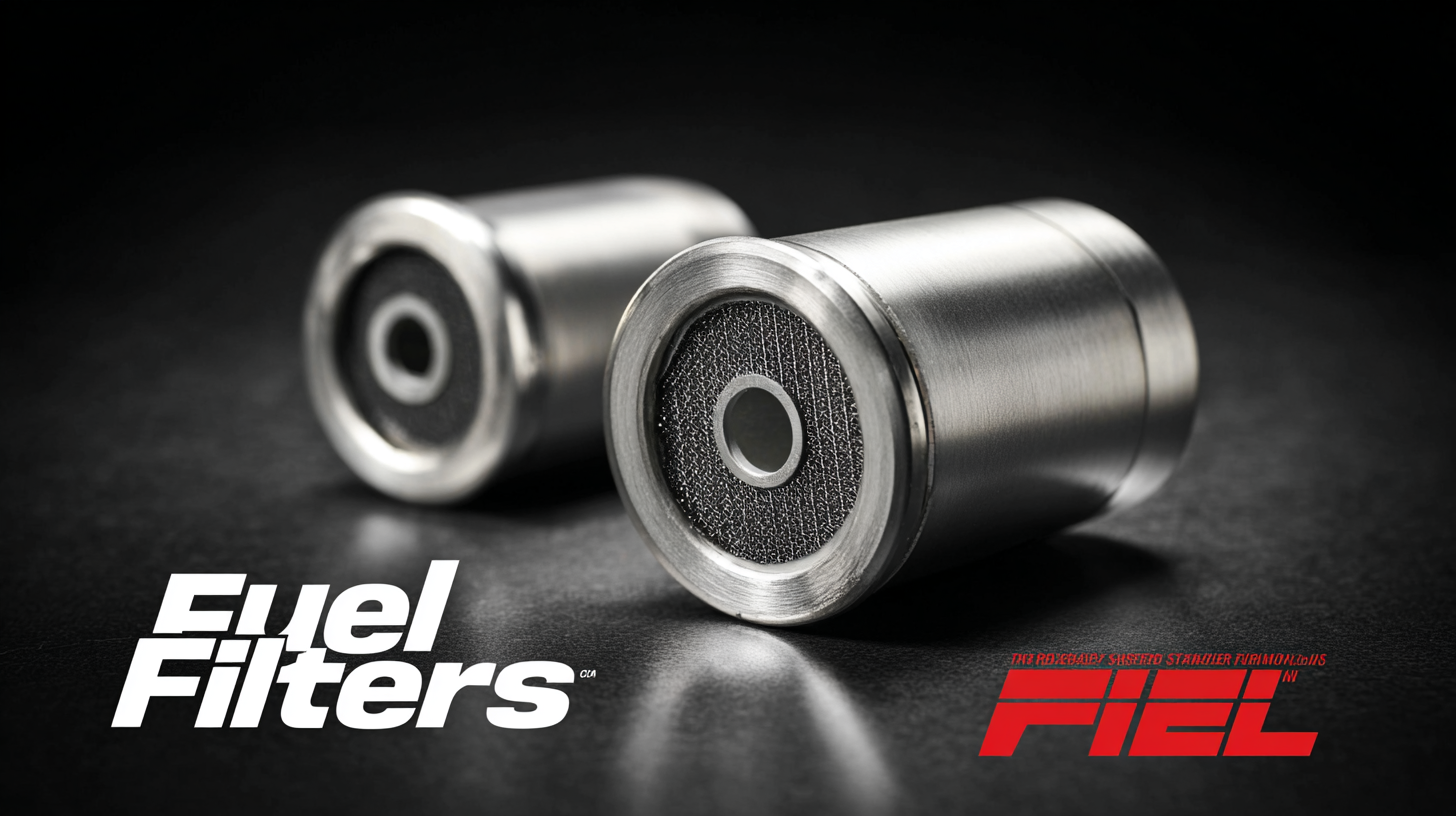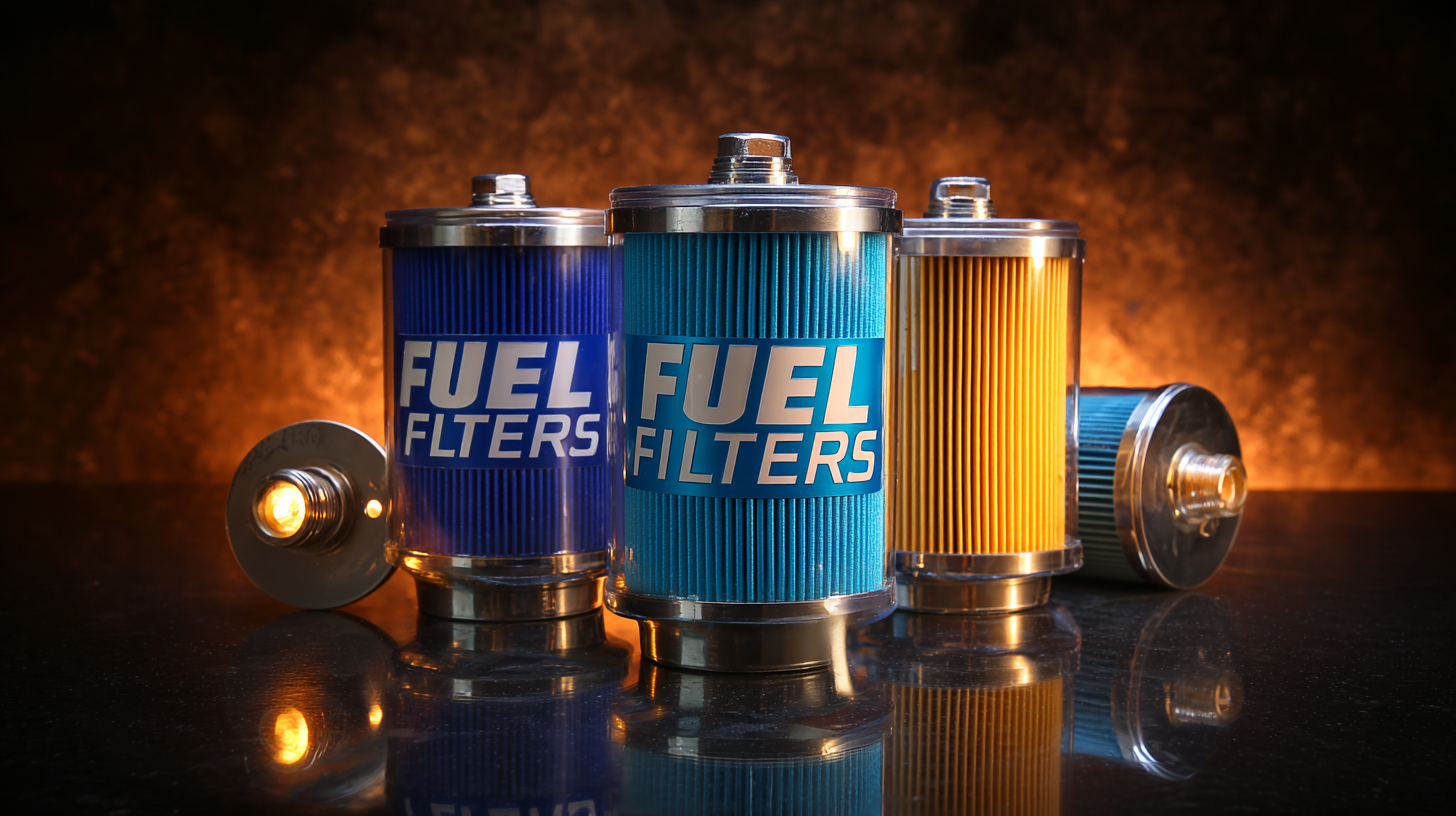
Understanding Industry Standards: What Makes the Best Fuel Filters Essential for Performance
In the realm of automotive maintenance, understanding industry standards is crucial for ensuring optimal vehicle performance, and one critical component that often goes overlooked is fuel filters. Fuel filters play a vital role in safeguarding your engine by removing contaminants from fuel before it reaches the combustion chamber. This tutorial will delve into what makes the best fuel filters essential for performance, highlighting the importance of quality materials, efficient filtration processes, and proper maintenance practices. By exploring the various industry standards that govern fuel filter production, we aim to equip you with the knowledge necessary to make informed decisions when selecting fuel filters for your vehicle. Join us as we unravel the complexities of fuel filtration and its impact on your engine's efficiency and longevity.

The Importance of Fuel Filters in Automotive Performance: Key Industry Insights
A fuel filter plays a critical role in enhancing automotive performance by ensuring that only clean fuel reaches the engine. Contaminated fuel can lead to reduced efficiency, increased emissions, and damage to critical engine components. By filtering out impurities such as dirt, rust, and debris, a high-quality fuel filter maintains the integrity of the fuel system and helps engines run smoothly. This essential component not only prolongs the lifespan of the engine but also improves overall performance by ensuring optimal combustion.
Moreover, understanding industry standards for fuel filters can significantly impact vehicle maintenance and performance. Manufacturers adhere to rigorous testing and validation processes to certify that their filters meet specific criteria for filtration efficiency and flow rates. By selecting fuel filters that align with these industry standards, vehicle owners can make informed decisions that contribute to enhanced reliability and performance metrics. Investing in superior fuel filtration technologies is not merely a maintenance step; it is a proactive approach to maximizing the potential of any vehicle.
Understanding Different Types of Fuel Filters: Pros and Cons in Real-World Applications
Fuel filters are critical components in ensuring the smooth operation of various engines, and understanding their different types can significantly impact performance. There are primarily three types of fuel filters: inline filters, canister filters, and cartridge filters. Inline filters are compact and typically installed in the fuel line, making them easy to replace but often requiring more frequent changes due to their exposure to higher flow rates. In contrast, canister filters offer greater filtration capabilities and durability, suitable for high-performance applications, but they tend to be larger and more complex to install.
Each type has its pros and cons in real-world applications. For instance, an inline filter may be ideal for smaller vehicles or motorcycles where space is limited, while canister filters are often favored in high-performance vehicles due to their superior dirt-holding capacity and higher flow rates. Cartridge filters strike a balance between the two, offering reasonable filtration with easier access for maintenance. Ultimately, selecting the appropriate fuel filter type is crucial as it directly enhances engine performance and longevity, ensuring that the fuel supply remains clean and efficient.
Evaluating Fuel Filter Efficiency: Metrics That Matter for Optimal Engine Function
 Fuel filter efficiency plays a crucial role in optimizing engine function, and several metrics can be evaluated to determine their effectiveness. Studies indicate that a well-functioning fuel filter can significantly reduce impurities in the fuel system, enhancing engine performance and longevity. For instance, the pressure drop across the air filter can directly influence the performance of an internal combustion engine. A negligible pressure drop is essential as increased resistance can lead to lower power outputs and higher emissions, which are critical considerations for maintaining optimal engine function.
Fuel filter efficiency plays a crucial role in optimizing engine function, and several metrics can be evaluated to determine their effectiveness. Studies indicate that a well-functioning fuel filter can significantly reduce impurities in the fuel system, enhancing engine performance and longevity. For instance, the pressure drop across the air filter can directly influence the performance of an internal combustion engine. A negligible pressure drop is essential as increased resistance can lead to lower power outputs and higher emissions, which are critical considerations for maintaining optimal engine function.
When assessing fuel filter efficiency, it's essential to consider factors such as flow rate, filtration efficiency, and dirt-holding capacity. Filters that can withstand higher flow rates without excessive pressure drops generally result in improved engine performance. For enhanced performance, the choice of fuel is equally important; recent advancements in hydrogen fuel technologies have shown that different injection methods can influence not just efficiency but emissions as well.
Tips: Ensure that you regularly replace your fuel filters to maintain their efficiency and check for any signs of clogging or damage. Additionally, utilizing high-quality fuels can further improve your fuel filter's performance and, consequently, your engine's overall efficiency. Monitoring engine performance metrics can provide valuable insights into when maintenance or upgrades might be needed.
Industry Standards: What Defines the Best Fuel Filters and Their Impact on Longevity
In the realm of fuel filtration, understanding industry standards is vital for ensuring both performance and longevity. The best fuel filters are defined not only by their ability to block contaminants but also by their durability, efficiency, and adaptability to various fuel types. When assessing fuel filters, it's essential to consider factors such as pore size, material composition, and adherence to regulatory standards, which all contribute to a filter's reliability and maintenance needs.
Tips for selecting the right fuel filter include assessing the specific requirements of your vehicle's engine and considering filters that incorporate advanced materials such as ceramics or composites. These materials often provide better heat resistance and longer lifespans, ensuring optimal performance even under demanding conditions. Furthermore, regular maintenance and timely replacements can significantly extend the life of both the fuel filter and the engine, enhancing overall efficiency.
Investing in high-quality fuel filters that meet stringent standards can minimize the risk of clogging and other performance issues, thereby protecting your engine's health. Researching and sticking to recommended specifications can lead to more informed choices, ultimately benefiting your vehicle’s performance and longevity.
Choosing the Right Fuel Filter: A Guide Based on Manufacturer Recommendations and Testing Data
When it comes to maintaining optimal engine performance, selecting the right fuel filter is crucial. Different manufacturers provide recommendations based on their testing data, which should serve as a guiding principle during your decision-making process. Look for filters that meet or exceed the specifications set by the original equipment manufacturer (OEM). This ensures compatibility and the best performance, as well as longevity of both the fuel filter and the entire fuel system.

Tip: Always check the micron rating of the fuel filter. A lower micron rating means finer filtration, which can help prevent contaminants from entering your engine. However, it’s essential to balance filtration quality with flow rate; excessively fine filters may hinder fuel flow, impacting engine performance.
Additionally, pay close attention to the fuel filter's construction materials. Filters made from high-quality materials are likely to withstand high pressure and temperature changes, enhancing their durability.
Tip: Inspect your fuel filter regularly and follow the manufacturer's recommended replacement intervals. This proactive approach not only maintains fuel system health but can also save on costly repairs in the long run.
